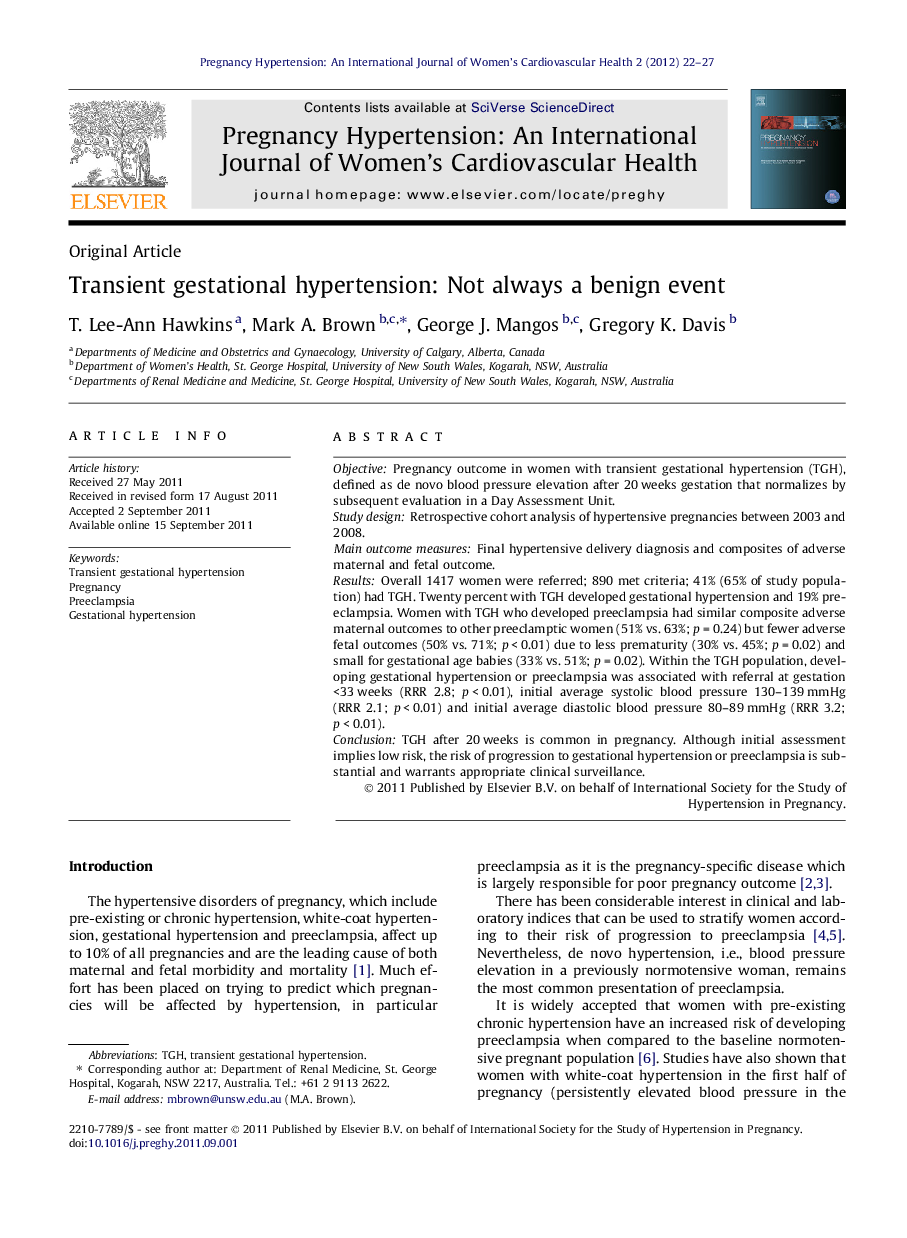| Article ID | Journal | Published Year | Pages | File Type |
|---|---|---|---|---|
| 3005526 | Pregnancy Hypertension: An International Journal of Women's Cardiovascular Health | 2012 | 6 Pages |
ObjectivePregnancy outcome in women with transient gestational hypertension (TGH);defined as de novo blood pressure elevation after 20 weeks gestation that normalizes by subsequent evaluation in a Day Assessment Unit.Study designRetrospective cohort analysis of hypertensive pregnancies between 2003 and 2008.Main outcome measuresFinal hypertensive delivery diagnosis and composites of adverse maternal and fetal outcome.ResultsOverall 1417 women were referred; 890 met criteria; 41% (65% of study population) had TGH. Twenty percent with TGH developed gestational hypertension and 19% preeclampsia. Women with TGH who developed preeclampsia had similar composite adverse maternal outcomes to other preeclamptic women (51% vs. 63%; p = 0.24) but fewer adverse fetal outcomes (50% vs. 71%; p < 0.01) due to less prematurity (30% vs. 45%; p = 0.02) and small for gestational age babies (33% vs. 51%; p = 0.02). Within the TGH population;developing gestational hypertension or preeclampsia was associated with referral at gestation <33 weeks (RRR 2.8; p < 0.01);initial average systolic blood pressure 130–139 mmHg (RRR 2.1; p < 0.01) and initial average diastolic blood pressure 80–89 mmHg (RRR 3.2; p < 0.01).ConclusionTGH after 20 weeks is common in pregnancy. Although initial assessment implies low risk;the risk of progression to gestational hypertension or preeclampsia is substantial and warrants appropriate clinical surveillance.
